
"All she need was an opportunity"
She is a 21 year old girl, youngest sister to five brothers and five sisters. She lives with her sister and parents.
I remember her being shy and a girl who would hide herself in a corner. Today I was surprised to see her at Panaga center with a bunch of flowers greeting us in our office. From a girl who couldn’t write her own name when we first found her to now joining girls clubs, playing football, going to gym and improving her job skills in different trainings.
Today she is at Panaga center to get on a three month
internship for a job placement with nine other girls and boys. We are proud,
excited for Yasmin and her progress in a few years. She is a great example of
the power of Yezidi girls. All we did is our job in providing the opportunity
and she used it in the best way possible.
“MY BROTHER IS MY HERO”

“It is fun. I learn a lot of things. The teachers are very nice with us” says Arslan at Panaga “The teachers taught me how to be a good human”, he explained that “the kids should not just respect the elders, they should respect people younger than them.” Azad is 9 years old from the district of Shingal. Azad comes to Panaga with two other of his brothers Ali and Kalash . Azad is the naughty one while his brothers are quieter. They lost their father when ISIS overrun Shingal district back in Aug. 2014. Their family includes seven brothers and three sisters. They love every one of their family. Azad and Ali are on the right and left, their friend, Kalash is in the middle. Azad and his brothers explained that they love their oldest brother the most, who is a nurse, since he has been playing the father’s role and providing the family. He also explained that his mom cooks them delicious food that their favorite is Yaprakh1. (Make sure you try out next time you are in Iraq)
The three brothers have exploited the opportunity at Panaga to express themselves through the plays they make. The theme of their plays has revolved around parenthood, respect, helping others, jealousy and telling the truth. The program is a voluntarily led program by our team of local volunteers who are eager about helping their community. The program lasts for three months, it offers lessons of art, music, character and English language.
Yaprakh is a Kurdish food that has different eatable stuffed vegetables with rice like leaves, onions, eggplants and tomatoes, potatoes, meat and so on.

Robotic Dance
"Fahid is a talented child, an orphan who has lost his father, has a talent for dancing ”

Championing Girls
"Sipal, 11 years, she escaped her home after ISIS invaded their birthplace. She now lives in a rented house in Shariya town.”

"The Story of Fisherman's Son"
anonymous is 11 years
anonymous is 10 years
anonymous is 7 years
anonymous, anonymous and anonymous are three internally displaced kids that live in the town of Shariya among host community households. While my friend and I were buying a fish to grill "Mazgoof fish1", their father Ahmed who is a fisherman asked me if Panaga has a program to enroll his kids. The father explained that his seven-year-old son, Lavand has not been able to go to school because of a mistake in his birth year on his ID. We were happy to enroll Lavand and his two brothers in our program and provide them with the opportunity to learn and have fun. The three brothers have been learning English, character lessons, English music and drama at Panaga. They were grateful for the opportunity, thanked Panaga and their team.
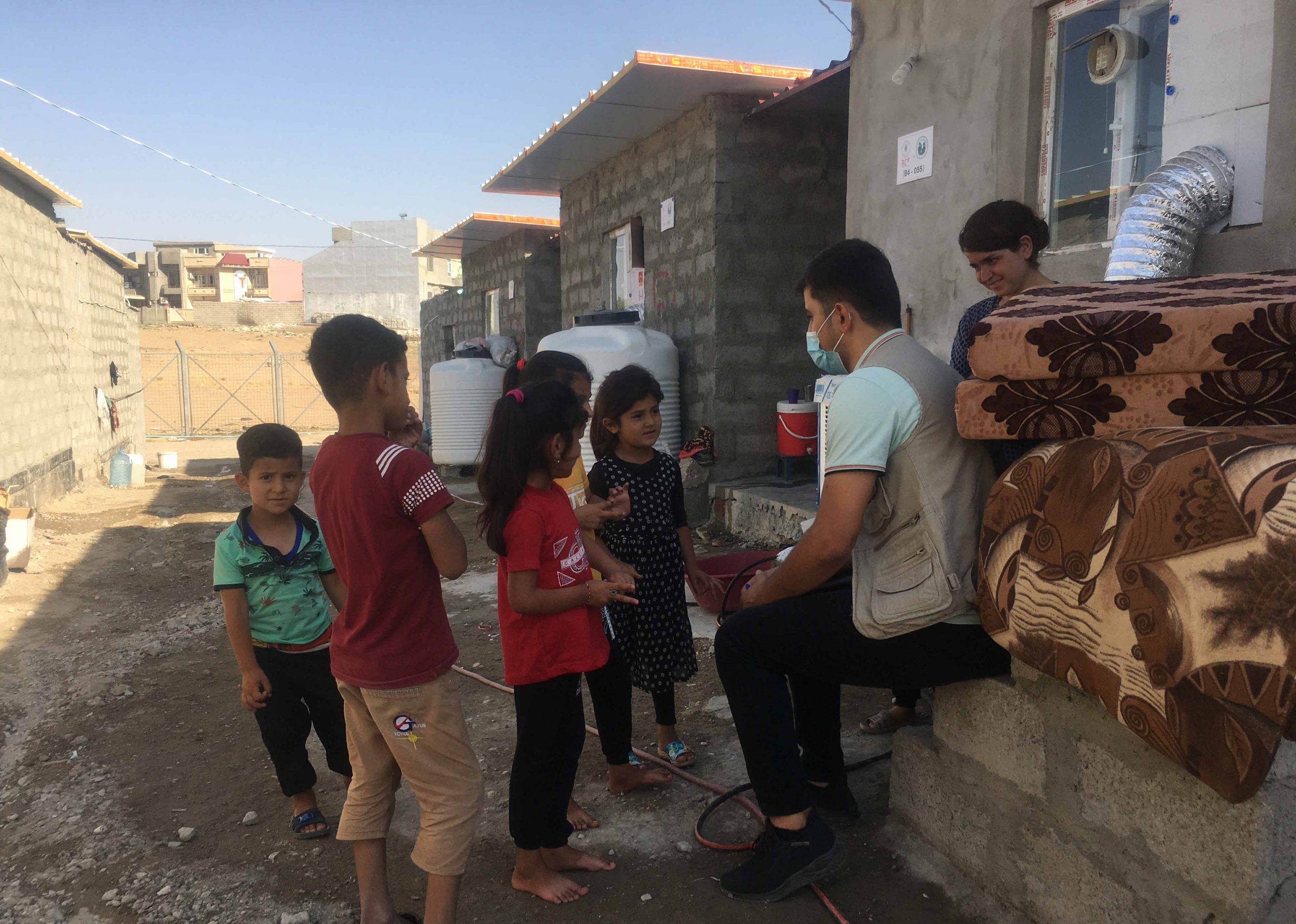
No Friends but the Mountains
She stayed for 10 days in the mountains with her family and then walked to Syria with hardly any food or drinking water. She was continuously complaining to her family about her demands. She used bad words. She would ask others money and debt from shops without her family’s knowledge. She was very sensitive, angry and usually cried. She refused to take baths. She went out of home without telling her family.
She is skinny. She has brown eyes; she had a long hair and she didn’t use to take care of her appearances. Besides, she always listened carefully, was curious and wanted to learn and explore. The team gave instruction how to handle
the daughter. The team visited her family showed care, listened to their problems and gave them advices. Murad had individual healing play sessions where he got the chance to do counseling and give a lot of related instructions. She participated in classes and would discuss her ideas with the teacher.
We were happy to see her behavior remarkably improved after four months of the program. She improved her relationship with her family and siblings.

"The Gun is not an answer"
7 years old, from Sibashexdre in Shingal.
He lives in a tent in Shariya camp with his parents, five siblings and one half-sister “from the father”. He is at first grade of school. His father works for daily wages to put the food on the table.
He was very into weapons, gun toys, war games and mobile addicted. He used violence with his friends when they didn’t agree or go together. He used bad words and would constantly get in trouble with his siblings and neighbor kids. Despite all of that he loved the time he had at the center. His sister came for the first three months. When the big fire incident happened as it burned 200 tents, it affected all the kids, as Shahir, he was fearful, acting out, nightmares and wetting himself. He was so excited to be at the center.
When our team visited his family and sister,
he would say, “Teacher, let me in the program,
I promise I
will behave” when he was in the program, he would always encourage his peers to
focus and behave in the
class.

Bewar Rizgo Sharo
He is 7 years old. He is from Shingal. He has been living in Shariya camp for his entire life. We visited his family to learn about his behavior and check on his progress during his participation in our program. On our first visit to his family, his mother said they have spoiled Bewar because he looks different as he is very special to them more than anyone one in the family. He would not listen to his mother and whenever he wanted something and we did not give to him, he would cry till he gets it. Moreover, his father would bring him whatever he requests. For example, he would spend a lot of time on phone, if someone takes the phone from him, he would fight. This was a big issue for his mother, since she did not know how deal with him. She would spend most of the time fulfilling Bewar’s needs rather than doing her chore. ‘’my son spends most of the time on the phone playing action games, he is addicted to it’’ his mother said. It was obvious because Bewar was very aggressive with his family and class mates in classes.
Bewar participated
in MHPSS program for three months where the team Improved his behavior positively by giving character building lessons, advice, visit the family and work with his parents. Moreover, the team encouraged him to participate in group activities such as games, dancing, and drama to build self-confidence, self-esteem, and provided him opportunities to make more friends and encourage positive behavior. Beside his participation in the program the psychologist visited his family regularly and did group, individual sessions and counseling to the family, more importantly they provided his mother methods on how to deal the issue. Day by day Bewar behavior changed noticeably, He now not only listens to his mother but help her doing her chore.

Ali Haji Abdo
Ali is 10 years old boy who lives in Shariya camp. When he first came to our center, he used to isolate himself and would avoid participating in activities and games. His teachers said that Ali was rarely communicating with his friends in the center and nor with his family. The art therapist offered him to participate in a dancing group but he refused to join the group, he was being shy. The fire breakout messed up his mental condition. Panaga center helped him get recovered from the mental disturbances that he experienced.
For this reason,
our therapist Mr. Bewar did psychological sessions with Ali. He did sessions
till the end of the program. He eventually graduated and finished with sessions.
He was recovered quite well. Ali developed few skills. For instance, during the
last month Ali was able to respond when somebody talked to him, Ali was able to
make eye contact and express himself.

Firas Dakhil
Age: 18
Birthplace: Girzarik/Shingal
Current Location: Shariya Town
House: Tent, non-formal camp
Family members: 3
sisters and 3 brothers
Firas lives with his parents and siblings. He used to live in Syria for four years then moved to Duhok\Shariya due Turkey military assaults. The family was afraid that Firas would join to armed forces or even for Syrian military forces. Firas likes playing Saz “a traditional Kurdish instrument” He sometimes plays it and he enjoys listening to it.
Before ISIS The Islamic state came, they lived in their village peacefully. He went to school and his father worked for daily wages and his family did agriculture back then in Shingal. Firas’s family fled to Shingal mountain and stayed for a week then went to settle in Syria. It seemed that these forced movements made Firas to dropout from school. He only made it to fifth grade and left to be able to work and support his family. He knows a little Arabic and English. The teacher teaches him Kurdish literacy.
His family has the struggle to come to the daily needs and keep the food on the table. They are managing themselves with daily work wages and growing vegetable fields during summer time.
Firas
told us that he feels comfortable and safe at the center. He said that his emotion instability is decreasing that he is enjoying the program and learning from it. Firas likes English language, and Firas has a dream which is to be become a translator. He wants to get back to school if there is a chance, he will pursue an academic degree. He also wants to have a stable job that can provide personal
and family expenses.
He is a
smart student. He participates in the class. He has the potential to improve toward his dreams. We want to encourage him for that.
Throughout
January Firas stated that he felt a meaningful connection to the center it helped him mentally and educationally that it has been a great opportunity for
him to learn literacy, and making good friends at Panaga, so all of this helped
him to realize that if he wanted something he could make time for it, Firas
added that he had learned many things about life and ways to organize his life
toward better. But Firas said that the only thing he needed the most despite
his desires and wishes it is time, because he worked daily none stop from 7:00
PM to 02:00 AM after that he started all over again from 06:00 AM to 11:00 AM.
His happiest part of day when he came to Panaga organization, because he enjoyed
his time at Panaga by learning and spending good time with colleagues and
teachers. Meanwhile in our conversation about his family he talked about the
moment when he felt proud of himself and had a sense of achievement in his life,
is when he was saving money for his brother’s stomach surgery. He was glad so
he could help his brother in such difficult times which he and his family been
through.
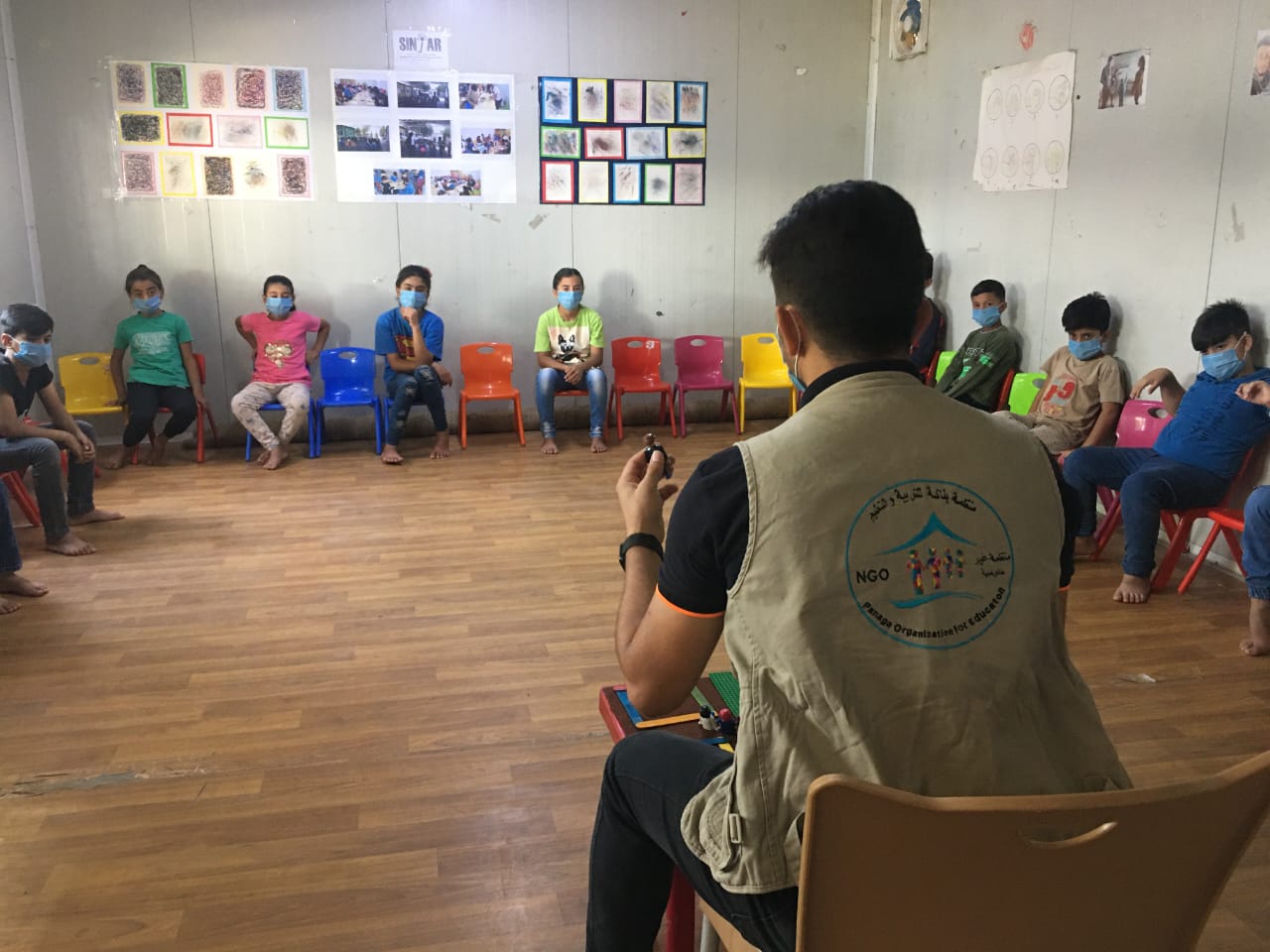
Raman Bahram
Age: 10 years
Original Location: Shingal
Current location: Shariya
Psychological condition: Diagnosed Autism
Raman’s Father came to Panaga, he explained that
no schools take their son. He really wanted his son to attend at Panaga
programs. First, we thought that it would be difficult to keep a kid who
suffers severe Autism among other kids that he needs special treatment. The
team decided to give him a chance but with special care and attention from
staff. 15 days as a test in the center and it went well. With intensive work,
care and attention from Panaga staff, Raman did a significant progress in terms
of behaviors and physical improvements. His parents were very happy. They
explained that in their last check with the doctor for Raman, his doctor was
surprised for the evaluation that he did for Raman’s Autism level comparing to
his previous evaluations. The doctor stated that improvement in Raman's brain
chemistry is remarkable.
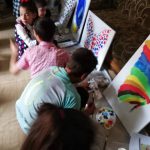
A rainbow butterfly
"A rain bow butterfly Panaga special student Zedan. The 14 year old kid, he lost his father and mother ”
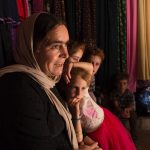
Hajar, The Mother of Seven Kids
“Children are like white sheets of paper,” said Hajar. “It is our job, as their parents, to help write the right things on these sheets.”

Nazadr
Age: 35
Years old
Family members: four children
Two boys and two girls
Birthplace:
Shingal
Current
Location: Shariya Town
Nazdar lives in an abandoned building structure.
She married at an age of 16 years. She was the third wife of the man. The man
was rich and her family chose him for her. She said that she was a naïve girl
and didn't know what was really going on. Her marriage didn’t last long. She
got a divorce. She marries again to a man who they later had these four
children together. The man was a widow who had lost her wife. He had four boys
with the first wife. So Nazdar had to take care of the husband's kids as well.
Now four of them are married and one is still living with them. These four boys
who she took care of are not asking about her anymore.
Her husband is numb and he always talks about his
dead wife. He is very irritated. He easily gets angry at her and her kids. He
doesn’t take a good care of them.
She explained that she was overthinking but
attending Panaga was a big relief. She is psychologically much improved. She
wanted to keep attending the program. The team saw that she needed to continue,
so they invited her again to a new session.

Fatima
Age: 39 years old
Original location: Tilbanat\Shingal
Current location: Shariya Town
Fatima has come to the center to offer her skills
even if it is a volunteer work. She explains that being inside four walls and
just doing the home labor is very boring and depressing. She is good at hand
crafts, pastry and gardening. Though she is old enough, she is single that is a
challenge in her personal life. Her parents have passed away, she lives with
her brother, sister and nephew. In her life, she has suffered much. Her sister
was in ISIS captivity for a period of time and her sister in law died when they
were fleeing ISIS back in 2014. She likes to have a job where she can support
herself and her family. She wishes to be back to her homeland in
Shingal.

Hadiya Khero
Hadiya Khero is a 20 years old young lady. She is a sister of four brothers and two sisters. They all live with their mother. Hadiya talked about the trauma of losing her father after fleeing Shingal. She said that her father was a close friend to her. She had to visit a psychiatrist for period of one year. She took medicine to recover. She has learnt sewing from her mother; she sews clothes and sells them. She can support herself and family with the small amount she gets. She has find sewing as a healing to her depression.
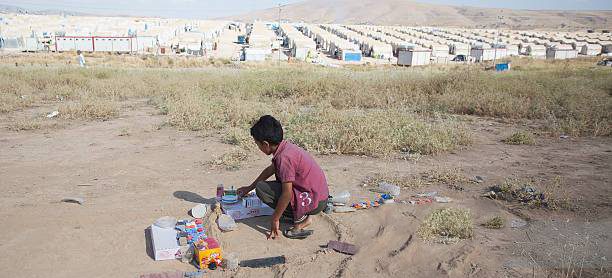
This is the heading
Age: 26 years old Current Location: Shariya Original Location: Tilbanat\Shingal. She has lost her husband as they were fleeing from ISIS the Islamic State. In the time of flee, her husband was captured when he tried to go back and bring his mother. She is ended up losing him and his mother. She stayed in the mountain for 7 days and then went to live in Kurdistan as internally displaced people. She often thinks of her husband and dreams of him returning back. Her thoughts have made her tired and frustrated. She has been in consideration for the community-based therapy, the staff had already made a visit. She visits the center to get help for her daughter as well. She has made positive progress for her psychological condition. Her headache has slowed down. She feels better. She started to recall her memories and things she learned before. She knows little English and enjoyed to refresh her information.


